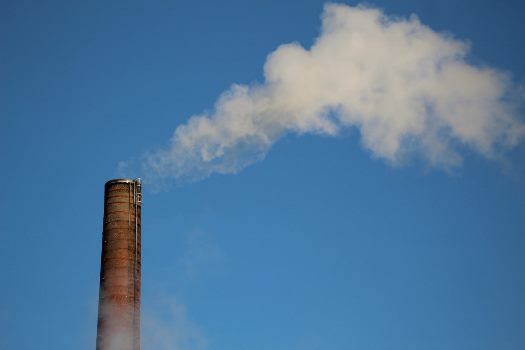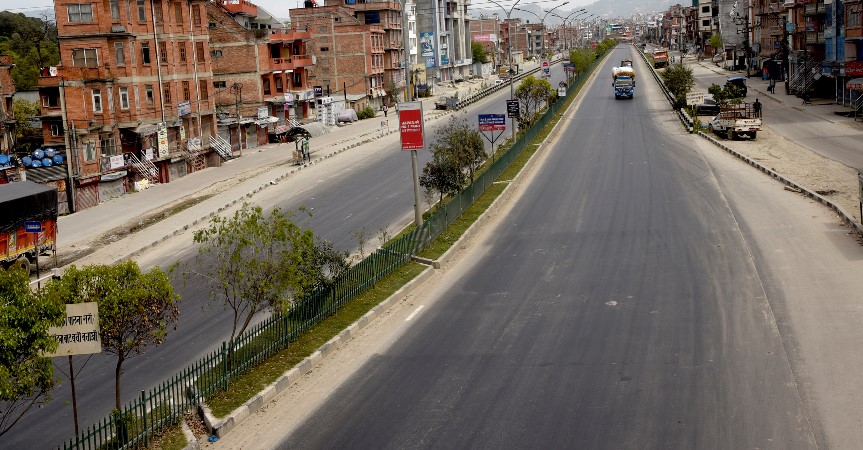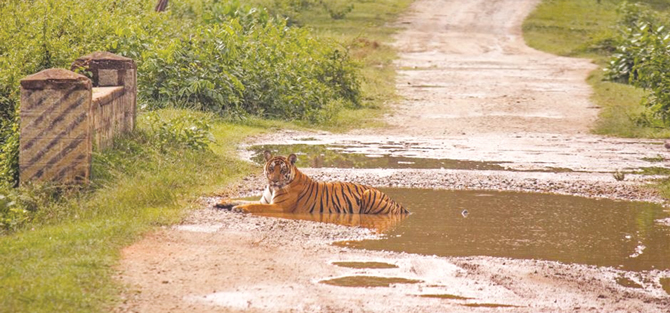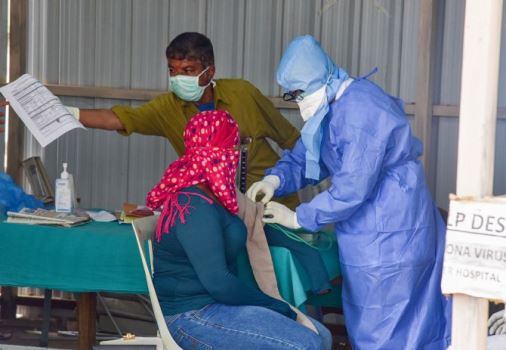How close is the link between air pollution and COVID-19 deaths?

By Indira Aryal
Kathmandu, May 12: As the coronavirus pandemic affects millions of people across the world and claims thousands of lives, various studies have been carried out to find out the causes of more mortalities.
Various studies have been carried out and preliminary reports show that in the countries with a high level of air pollution death risk could be higher from communicable diseases like coronavirus, experts say.
According to World Health Organisation (WHO), those countries with underlying pollution-related conditions have witnessed severe impact of COVID-19. However, medical professionals say it is too early to prove a direct relationship between air pollution and coronavirus deaths.
A study conducted at the University of Siena, in Italy, and Arhus University, in Denmark, suggests a possible link between high levels of air pollution and coronavirus deaths in northern Italy.
In the context of Nepal, Public Health Expert Dr Rabindra Pandey said air pollution would be the main reason in the urban areas for the transmission of the virus. However, there are various other risk factors for the transmission of the coronavirus disease, including geological structure. He said that due to the open border with India and easy migration, Nepal could be another hotspot for infection.
“Another reason for the transmission is the high level of population in the urban areas and easy migration from one place to another could spread the virus from one place to another. So easing lockdown right now might increase the risk of transmission in the main city areas,” Dr Pandey said.
Pollution factor matters in the urban areas for the easy and fast transmission of the virus as urban areas are coping with increasing air pollution. If the infection exists in high numbers, it will be hard to bring it under control, he said.As per the WHO warning, June and July could be the peak time for Nepal for the infection of coronavirus, he informed.
For further management to control air pollution, Nepal should learn from the current situation. The government should actively implement policies to minimise air pollution by encouraging electric vehicles and shifting industries away from the city areas, Dr Pandey said.
Bhupendra Das, Environmentalist and Research Employee at Institute for Advanced Sustainability Studies (IASS), Potsdam, Germany, stated that research on air quality within the Kathmandu Valley also indicates that diesel vehicles make a substantial contribution to ambient pollution.
He said that the current high mortality rate of humans due to COVID-19 was more likely linked to previous respiratory illness, heart disease, other diseases, medication, elderly and feeble immune system, based on preliminary findings from an analysis of various countries with high mortality due to coronavirus.
Environment expert Bhusan Tuladhar stated that after the world witnessed coronavirus infections and deaths, air pollution was found to be linked with more cases. The impact of the virus has been more adverse in urban areas where people are more exposed to air pollution, he said.
“Now we can see and feel the cleaner air and less number of people found sick from other communicable diseases; this could be a lesson to the world to minimise vehicle emission.”
We could minimise the outdoor air pollution that kills more people every year by promoting electric vehicles. We need to change our habit of burning waste, coal, oil and gas and promote the habit of electronic energy instead,” he informed.
According to Tuladhar, more urban sectors are affected by the virus as the volume of pollution is definitely high in those areas. “We cannot continue the present situation after the lockdown ends as there should be movement of vehicles, industries should operate, but we could encourage people to use electric vehicles and use electricity instead of coal to operate industries in the long run.”
Meanwhile, a study conducted in the Philippines stated on the base of preliminary data that almost all the people dying in the Philippines due to coronavirus had pre-existing conditions, most of them linked to air pollution. New research published in the journal Science of the Total Environment has found that long-term exposure to air pollution may be “one of the most important contributors to fatality caused by the COVID-19 virus” around the world.
Recent News

Do not make expressions casting dout on election: EC
14 Apr, 2022
CM Bhatta says may New Year 2079 BS inspire positive thinking
14 Apr, 2022
Three new cases, 44 recoveries in 24 hours
14 Apr, 2022
689 climbers of 84 teams so far acquire permits for climbing various peaks this spring season
14 Apr, 2022
How the rising cost of living crisis is impacting Nepal
14 Apr, 2022
US military confirms an interstellar meteor collided with Earth
14 Apr, 2022
Valneva Covid vaccine approved for use in UK
14 Apr, 2022
Chair Prachanda highlights need of unity among Maoist, Communist forces
14 Apr, 2022
Ranbir Kapoor and Alia Bhatt: Bollywood toasts star couple on wedding
14 Apr, 2022
President Bhandari confers decorations (Photo Feature)
14 Apr, 2022









